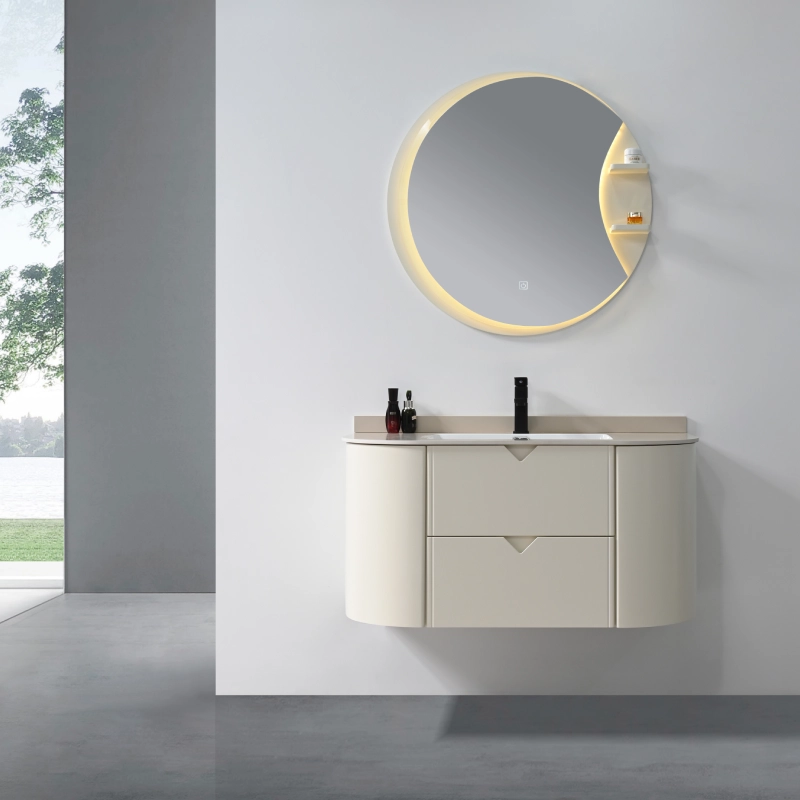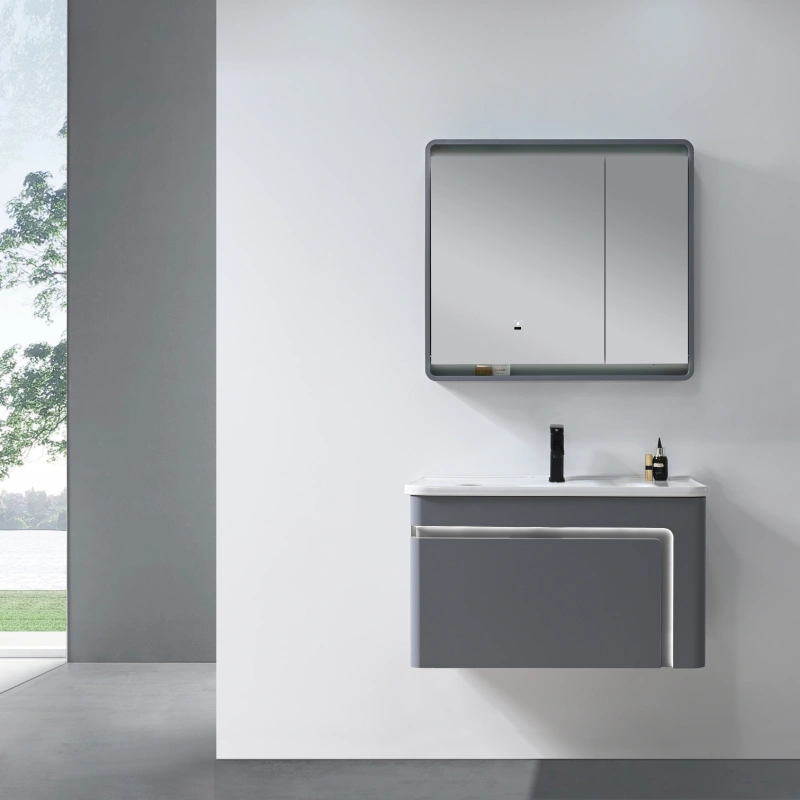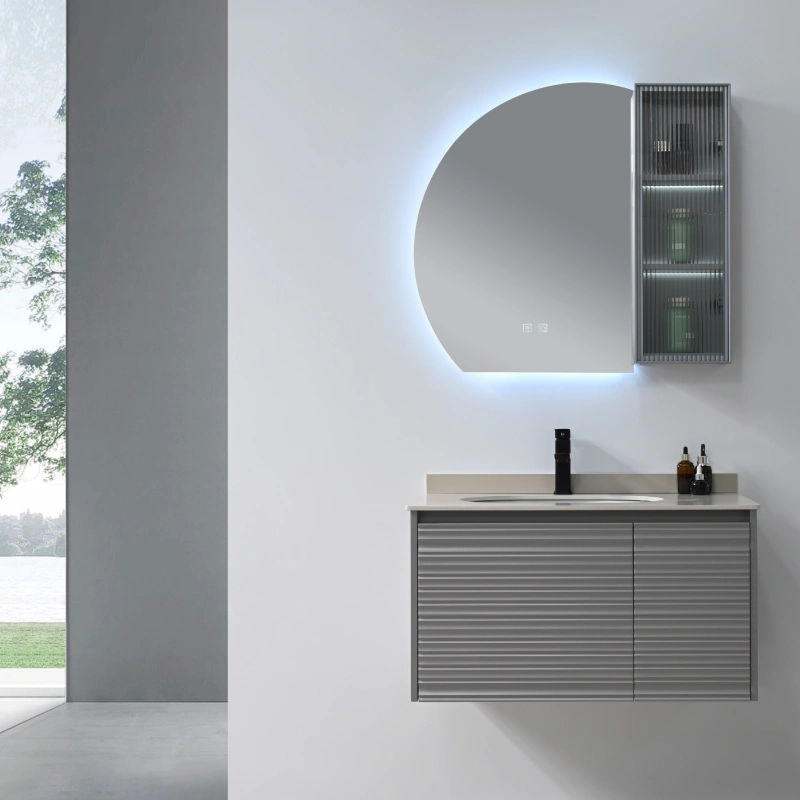How to Choose a Reliable Bathroom Cabinet Manufacturer in China
The Importance of Choosing the Right Bathroom Cabinet Manufacturer
When it comes to selecting a bathroom cabinet manufacturer, especially from China, the decision is crucial for the success of your business. China is renowned for its manufacturing capabilities, offering a vast range of products at competitive prices. However, not all manufacturers are created equal. The right partner can provide high-quality products, timely deliveries, and the flexibility to meet your specific needs, while the wrong choice can lead to substandard products, delays, and unnecessary complications.
What to Look for in a Bathroom Cabinet Manufacturer
1. What Quality Standards Should a Bathroom Cabinet Manufacturer Meet?
When selecting a bathroom cabinet manufacturer, quality should be at the forefront of your decision-making process. Ensuring that the manufacturer meets specific quality standards is critical to the longevity and appeal of the bathroom cabinets.
Certifications and Industry Standards
Look for manufacturers that hold relevant certifications, such as ISO9001 for quality management systems, FSC certification for sustainable wood products, and CE marking for products sold within the European Economic Area. These certifications indicate that the manufacturer adheres to recognized industry standards and has undergone rigorous testing and auditing.
Material Selection and Craftsmanship
The materials used in bathroom cabinets are a significant factor in their quality. Manufacturers should use high-grade wood, MDF, or plywood with water-resistant properties, especially for products intended for humid environments like bathrooms. Examine the craftsmanship by requesting samples or visiting the factory. High-quality manufacturing should include smooth finishes, precise cuts, and durable construction techniques.
Consistency in Production
Quality should not vary from one batch to another. A reliable manufacturer should have strict quality control measures in place to ensure that every product leaving the factory meets the agreed-upon standards. This can be achieved through regular inspections, both during and after production, as well as standardized production processes.
2. How to Evaluate a Manufacturer's Experience and Expertise
Experience is a strong indicator of a manufacturer’s reliability. Manufacturers with a long track record in the industry are more likely to understand market demands, possess refined production techniques, and be capable of handling complex orders.
Years in Business and Specialization
A manufacturer that has been in the industry for many years is likely to have encountered and overcome various challenges, making them a more reliable partner. Specialization is also important. A manufacturer that focuses specifically on bathroom cabinets, as opposed to general furniture, will have a deeper understanding of the specific requirements for these products, including water resistance, durability, and aesthetic design.
Successful Projects and Case Studies
Reviewing a manufacturer's portfolio can provide insight into their capabilities. Look for case studies or examples of large-scale projects they have completed, especially those similar to your own needs. This will give you confidence in their ability to deliver high-quality products that meet your specifications.
Innovative Design and R&D Capabilities
The best manufacturers invest in research and development (R&D) to stay ahead of trends and continually improve their products. Ask about their R&D capabilities and whether they can provide innovative designs that align with current market trends.
3. What is the Importance of Manufacturing Capabilities and Facilities?
The facilities and technological capabilities of a manufacturer can greatly impact the quality and consistency of the products they produce. Advanced manufacturing processes and equipment allow for greater precision, efficiency, and the ability to handle large orders.
Factory Size and Production Capacity
The size of the factory and its production capacity are crucial factors to consider. A larger factory with high production capacity can handle bulk orders and ensure timely delivery, which is essential for maintaining a steady supply chain. Smaller manufacturers might struggle with larger orders, leading to delays or compromises in quality.
Advanced Technology and Equipment
Manufacturers that use advanced technology and equipment are more likely to produce high-quality products. Automated machinery, such as CNC machines for cutting and shaping, can improve precision and reduce human error. Additionally, advanced finishing techniques can enhance the durability and appearance of the bathroom cabinets.
Logistics and Supply Chain Management
A manufacturer’s ability to manage logistics and supply chains effectively is vital, especially if you are importing products from China. Reliable manufacturers should have established relationships with shipping companies, as well as experience in handling customs and import regulations for various countries.
How to Assess a Manufacturer's Customization Capabilities
Customization is a key factor for many buyers, especially in markets where unique designs or specific sizes are required. Understanding a manufacturer’s ability to meet custom design needs can significantly impact your satisfaction with the final product.
1. How to Ensure the Manufacturer Can Meet Your Custom Design Needs
Customization requires flexibility and a deep understanding of your requirements. It’s essential to confirm that the manufacturer can produce bathroom cabinets that match your specifications.
Flexibility in Design and Materials
The manufacturer should be able to offer a variety of design options, including different materials, finishes, and sizes. Whether you need a specific wood type, a custom color, or a unique configuration, the manufacturer should be able to accommodate your needs. Discuss your requirements in detail and ask for examples of previous custom work they have done.
Communication and Design Process
Clear communication is crucial in the customization process. The manufacturer should have a well-defined process for handling custom orders, including initial design consultations, prototype development, and final approval stages. Make sure that they are willing to work closely with you to refine designs and make adjustments as needed.
2. What Questions to Ask About OEM and ODM Services
OEM (Original Equipment Manufacturer) and ODM (Original Design Manufacturer) services can be valuable for businesses looking to brand products under their own name or develop new designs. Understanding the differences between these services and what to expect from the manufacturer can help you make informed decisions.
Differences Between OEM and ODM
OEM services involve the manufacturer producing products according to your specifications, with your branding. ODM, on the other hand, involves the manufacturer designing products that you can then brand and sell. Both options offer different levels of customization and control.
How These Services Benefit Your Business
OEM and ODM services allow you to offer unique products to your customers without the need for in-house manufacturing. This can save you time and resources while allowing you to focus on marketing and sales. Additionally, partnering with a manufacturer that offers these services can lead to the development of new products that set your brand apart in the market.
Key Considerations When Choosing OEM or ODM Services
When choosing between OEM and ODM, consider factors such as the level of control you want over the design process, your budget, and your long-term business goals. Ask the manufacturer about their experience with both services and request examples of products they have developed for other clients.
3. How to Review the Manufacturer's Portfolio and Client Feedback
A manufacturer’s portfolio and client feedback provide valuable insights into their reliability and the quality of their products. Reviewing these aspects can help you make a more informed decision.
Importance of Reviewing Past Projects
A comprehensive portfolio should showcase a variety of projects that demonstrate the manufacturer’s capabilities. Look for projects that align with your needs, such as custom designs, large-scale production, or specific materials used. This will give you a better understanding of what the manufacturer can achieve.
How Client Testimonials Indicate Reliability
Client testimonials and reviews can reveal important details about the manufacturer’s reliability, communication skills, and ability to meet deadlines. Positive feedback from other businesses in your industry can be a strong indicator that the manufacturer is a good fit for your needs.
Requesting References
If you are seriously considering a manufacturer, don’t hesitate to ask for references from past clients. Speaking directly with other businesses that have worked with the manufacturer can provide valuable insights that you might not find in written reviews or testimonials.
How to Evaluate a Manufacturer's Export and Compliance Capabilities
When sourcing bathroom cabinets from a Chinese manufacturer, it is crucial to ensure that they are fully capable of handling international exports and complying with the relevant regulations in your country. This will prevent any legal issues, delays, or additional costs that could arise from non-compliance.
1. How to Confirm a Manufacturer’s Export Experience
A manufacturer's experience with exports can be a strong indicator of their ability to handle your orders efficiently and without complications.
Experience with International Markets
One of the first things to verify is whether the manufacturer has experience exporting to your specific region or country. Each market has unique requirements, from packaging standards to import regulations, and a manufacturer familiar with these can ensure smoother transactions.
Knowledge of Customs Procedures
Customs procedures can vary widely between countries, and they are often complex. A manufacturer with in-depth knowledge of these procedures can help expedite the shipping process, avoid unnecessary delays, and ensure that all documentation is in order. Ask the manufacturer about their process for handling customs documentation and whether they have a dedicated team or partners that manage this aspect.
Shipping and Logistics Partnerships
The manufacturer’s partnerships with shipping companies and logistics providers are also important. Reliable manufacturers will have established relationships with reputable logistics firms that can handle the transport of goods from the factory to your warehouse. This ensures that the products are delivered on time and in good condition.
2. What Compliance Standards Should a Manufacturer Meet?
Compliance with local and international standards is critical when selecting a bathroom cabinet manufacturer. Non-compliance can lead to legal issues, fines, and even the seizure of goods.
Understanding of Product Regulations
Different countries have different regulations regarding the materials and construction of bathroom cabinets. For example, in the European Union, there may be specific requirements for wood products concerning the use of certain chemicals or adhesives. Similarly, the U.S. may have regulations concerning formaldehyde emissions from wood products. The manufacturer should be well-versed in these regulations and able to provide products that meet all necessary standards.
Environmental and Sustainability Certifications
Sustainability is becoming increasingly important in the global market. Many consumers and businesses are prioritizing environmentally friendly products, and having a manufacturer that can meet these demands can be a significant advantage. Look for manufacturers with certifications such as FSC (Forest Stewardship Council) for sustainable wood sourcing, or those that comply with REACH (Registration, Evaluation, Authorization, and Restriction of Chemicals) regulations in Europe.
Labor and Ethical Standards
Labor practices in manufacturing are under increasing scrutiny worldwide. Ensure that your manufacturer adheres to ethical labor practices, including fair wages, safe working conditions, and no child labor. Some manufacturers may have certifications such as SA8000, which indicates their commitment to social accountability and fair labor practices.
How to Make an Informed Decision
After evaluating potential manufacturers based on their quality standards, experience, customization capabilities, export experience, and compliance, the next step is to make an informed decision.
1. How to Compare Manufacturers Based on Cost and Value
While cost is an important factor, it should not be the sole criterion for selecting a manufacturer. Instead, focus on the value offered, which includes product quality, reliability, and additional services.
Understanding the Cost Breakdown
Request a detailed cost breakdown from each manufacturer to understand what you are paying for. This should include material costs, labor, shipping, and any other fees. A lower upfront cost may seem attractive, but if it comes at the expense of quality or reliability, it could cost you more in the long run.
Evaluating the Value of Additional Services
Consider any additional services the manufacturer offers, such as design consultation, prototype development, or after-sales support. These services can add significant value, especially if they help you avoid costly mistakes or delays.
Balancing Cost with Quality
It’s crucial to strike a balance between cost and quality. Sometimes, paying slightly more for a manufacturer that meets all your requirements can be a better investment than choosing the cheapest option. High-quality products are less likely to result in returns, complaints, or damage to your brand reputation.
2. What Steps to Take Before Finalizing Your Choice
Before making a final decision, there are a few additional steps you should take to ensure you are making the right choice.
Requesting Prototypes or Samples
Always request prototypes or samples before placing a large order. This allows you to evaluate the product quality firsthand and ensure it meets your specifications. It also provides an opportunity to test the manufacturer's ability to deliver on their promises.
Conducting Factory Visits
If possible, visiting the manufacturer’s factory can provide invaluable insights into their operations. A factory visit allows you to see the production process, meet the team, and assess the working conditions. It also demonstrates the manufacturer’s transparency and willingness to establish a long-term partnership.
Negotiating Terms and Conditions
Before signing any contracts, negotiate the terms and conditions with the manufacturer. This should include payment terms, lead times, quality guarantees, and penalties for delays or defects. A clear and mutually agreed-upon contract helps protect both parties and sets the foundation for a successful partnership.
Making the Best Choice for Your Business
Choosing the right bathroom cabinet manufacturer in China is a critical decision that can significantly impact your business’s success. By thoroughly evaluating potential manufacturers based on their quality standards, experience, customization capabilities, export experience, and compliance, you can make an informed decision that meets your business needs.
Remember to prioritize value over cost, ensure smooth communication, and take the necessary steps before finalizing your choice. With the right manufacturer, you can build a reliable supply chain, offer high-quality products to your customers, and achieve long-term success in the competitive market.





